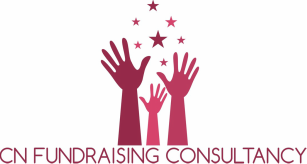If being a fundraiser is like being on a rollercoaster with highs and lows, then being a sole fundraiser is like being on The Big One at Blackpool pleasure beach! The highs are ultrahigh as you know that everything that has been achieved is down to you alone, but the lows can be a very lonely place as you question whether you are doing the right thing, and what you should be focusing your time on.
Since I turned to freelancing I have been working as the sole fundraiser for some very small organisations. I’m perfectly comfortable making decisions and working out a fundraising strategy and simply getting on with things, but if I’m honest the thing I really really want is to occasionally turn to the person next to me and say “I’m doing this now, what do you think??”
Whilst you can’t magic up colleagues for a bit of reassurance when you need it, there are plenty of places to meet other fundraisers and develop your own support network. Check out my list below for some great places to start:
Being a sole fundraiser does not have to mean being an alone fundraiser so get networking and meet some other people in the same boat as yourselves. Remember a problem shared is a problem halved and with over 130,000 charities listed on the charity commission making less than £100k and nearly 77,000 of them making less than £10k there will be plenty of other fundraisers in a similar situation to yourself.
Since I turned to freelancing I have been working as the sole fundraiser for some very small organisations. I’m perfectly comfortable making decisions and working out a fundraising strategy and simply getting on with things, but if I’m honest the thing I really really want is to occasionally turn to the person next to me and say “I’m doing this now, what do you think??”
Whilst you can’t magic up colleagues for a bit of reassurance when you need it, there are plenty of places to meet other fundraisers and develop your own support network. Check out my list below for some great places to start:
- Institute of Fundraising Sole Fundraisers special interest group – this group have a forum on Linked In where you can post questions and chat to other fundraisers, most of whom are in a similar situation to you.
- Fundraising networking meetings – many regional branches of the Institute of Fundraising organise networking meetings and within special interest groups there will be even more. Networking can be hard and doesn’t come naturally to most people, but the more you practice the better you will be at it. Be brave, get out there and chat to other fundraisers. Remember to follow up with people after the event in order to keep in touch and build relationships.
- Online fundraising forums and linked in groups – if you don’t have any networking meetings nearby or can’t get out to them, then reach out to other fundraisers online. There are loads of fundraising groups on linked in, some are used more regularly than others, my I personally like: Charity UK, Institute of Fundraising (there are also a whole host of special interest IOF groups) and UK Fundraising.I am also a huge fan of the new Facebook group ‘Fundraising Chat’ (if it isn’t clear you are a fundraiser from your Facebook profile you will need to message the owners of the page in order to join)
- Other networking groups in your local area – whilst it’s great to meet up with those in the same industry, you can still feel inspired and energized by networking with people from other industries, and there is a benefit for your work as well as you make great connections which could be profitable in the future. A quick Google search should give you a range of networking groups in your area.
- Institute of Fundraising – I have mentioned them several times already, but I genuinely think they are a great source of support and information for fundraisers from every size of organisation. Having discovered just how many small organisations there are in Scotland, IOF Scotland have responded with events aimed at small charities and even a sole fundraisers day in Edinburgh. They are planning more events in the future so keep your eyes peeled if you are north of the border.
- Mentoring/buddying – Having a mentor or buddy can be a great way to understand your own needs as a fundraiser, develop yourself and grow your career. There are schemes run by IOF East Midlands, IOF London, IOF North East, IOF North West, IOF SW, IOF W Midlands, and the Small Charities Coalition, you can also look into special interest groups for mentoring schemes and there are individuals who offer mentoring as well (myself included!)
- Training courses – many training courses not only help to facilitate networking with ‘breaking the ice’ activities, they also offer an opportunity to ask questions and share your own experiences which can be an eye opener when you realise many fundraisers have the same issues as you. Remember to exchange contact details with those on the course to help carry on the friendships/working relationships that you have made on the day.
Being a sole fundraiser does not have to mean being an alone fundraiser so get networking and meet some other people in the same boat as yourselves. Remember a problem shared is a problem halved and with over 130,000 charities listed on the charity commission making less than £100k and nearly 77,000 of them making less than £10k there will be plenty of other fundraisers in a similar situation to yourself.

 RSS Feed
RSS Feed